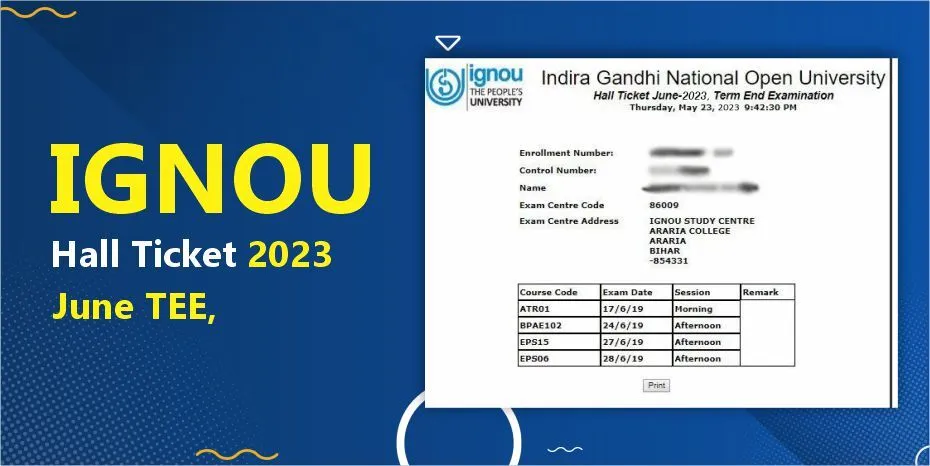The International English Language Testing System, or IELTS, is one of the most popular English language proficiency exams for those seeking to study or work abroad. Preparing for the exam can be stressful, especially if you are unable to attend a traditional classroom setting. However, with the right tools and tips, you can successfully prepare for the exam from the comfort of your own home. In this post, we will provide you with 10 tips to help you prepare for the IELTS exam and increase your chances of success. From creating a study schedule and practising with sample tests to improving your reading and writing skills, we’ve got you covered. So, let’s get started on your journey to ace the IELTS exam!
Contents
- 1 1. What is IELTS and why is it important?
- 1.1 2.How to prepare for IELTS at home without coaching?
- 1.2 3.How to start preparing for IELTS at home?
- 1.3 4. Set your IELTS score goal
- 1.4 5. Create a study plan
- 1.5 6. Learn the format of IELTS exam
- 1.6 7. Practice with official IELTS materials
- 1.7 8. Improve your English language skills
- 1.8 9. Work on your time management skills
- 1.9 10. Take practice tests and evaluate your performance
- 1.10 11. Find a study buddy or language exchange partner
- 1.11 12. Stay motivated and take care of yourself
1. What is IELTS and why is it important?
IELTS (International English Language Testing System) is a globally recognized English proficiency test that assesses the language proficiency of non-native English speakers. This test is designed to evaluate the language abilities of individuals who want to study, work, or migrate to an English-speaking country. IELTS is jointly owned by the British Council, IDP: IELTS Australia, and Cambridge Assessment English.
- Scoring high in the IELTS test can significantly increase your chances of success in your chosen field, whether it’s academic, professional, or personal.
- A good IELTS score is required to gain admission to universities in English-speaking countries, to apply for job positions that require English language proficiency, and to get a visa to migrate to an English-speaking country.
- Preparing for the IELTS test is crucial, and you can achieve a high score with proper planning and preparation.
So, if you are planning to take the IELTS test, it is essential to understand what it is, why it is important, and how it can impact your future.
2.How to prepare for IELTS at home without coaching?
- Preparing for the IELTS exam at home without coaching can be a challenging task, but it is definitely possible. First, familiarise yourself with the structure of the exam by researching online or reading a guidebook.
- Next, practise each of the four main skills that are tested: reading, writing, listening, and speaking. For reading and listening, practice with IELTS sample tests which are readily available online. For writing and speaking, consider finding a language exchange partner or making recordings of yourself practising.
- Focus on improving your grammar and vocabulary, which will be helpful in all four skills.
Finally, it’s important to manage your time effectively. Set a study schedule and make a plan for each day, to ensure that you cover all areas of the exam. With the right resources, dedication, and hard work, it is possible to achieve a high score on the IELTS exam without external coaching.
3.How to start preparing for IELTS at home?
Preparing for IELTS (International English Language Testing System) can be a daunting task, but it is possible to begin your preparation at home.
- First, it is important to become familiar with the test format, question types, and timing. You can find this information on the official IELTS website or in test preparation books. Next, set a study schedule and stick to it. This could include practising your reading, writing, listening, and speaking skills by doing exercises, watching English-language movies, listening to podcasts, and having conversations in English.
- It is also helpful to take practice tests to assess your progress and identify areas of improvement. Joining an online IELTS preparation course or finding a study partner can also be beneficial.
- Lastly, stay motivated and positive by celebrating your achievements and taking breaks when you need them. With consistent practice and dedication, you can improve your English language skills and succeed in the IELTS test.
4. Set your IELTS score goal
It’s important to have a clear goal in mind when preparing for the IELTS exam. Setting a score goal will help you focus your efforts and create a clear path to achieving success. To determine your score goal, research the requirements of the universities or institutions you are applying to. Different universities and institutions have different IELTS score requirements, so make sure you know what score you need to achieve to be considered for admission.
Once you have a target score in mind, you can begin to develop a study plan that aligns with your goal. Identify areas where you need to improve and focus on those specific areas.
It’s also important to set realistic expectations for yourself. While it’s great to aim high, you don’t want to set a goal that is impossible to achieve in the time you have to prepare
5. Create a study plan
Creating a study plan is crucial for preparing for IELTS at home. When you have a plan, you can set achievable goals and track your progress. This will help you stay organised and motivated throughout your preparation period.
- You need to identify your strengths and weaknesses by taking a practice test or a diagnostic test. Based on your performance, you can determine how much time you need to spend on each section of the exam.
- Set a realistic study schedule that suits your lifestyle and allows you to balance your other commitments. It’s important to establish a routine and stick to it to build discipline and focus.
- Remember to allocate enough time for each section of the exam, including Listening, Reading, Writing, and Speaking. Don’t neglect any section even if you think you are good at it.
- Each section has its own challenges and requires specific skills and strategies.
Also, try to vary your study activities to avoid boredom and improve your learning.
Finally, review your progress regularly and adjust your study plan accordingly. Celebrate your achievements and learn from your mistakes.
6. Learn the format of IELTS exam
The International English Language Testing System (IELTS) exam comprises four sections: Listening, Reading, Writing and Speaking. Familiarising yourself with the format of the exam is key to acing it, especially if you’re preparing for it at home.
Start with understanding the types of questions that are asked in each section. For instance, the Listening section has four parts, with each part consisting of 10 questions. The Reading section has three long passages with 40 questions in total. The Writing section has two parts, where you will have to write an essay and a letter, and the Speaking section is a face-to-face interview with a certified examiner.
It’s important to familiarise yourself with the time limits for each section so that you can manage your time effectively during the exam. You can find this information on the official IELTS website or through various study resources available online.
To get a feel for the exam format, you can also take practice tests that simulate the real exam. This will help you understand how the questions are structured and how to pace yourself during the exam. You can find free practice tests online, or invest in some good IELTS preparation books that come with practice tests.
Remember, understanding the format of the IELTS exam is the first step in preparing for it, and will go a long way in helping you to achieve your desired score.
7. Practice with official IELTS materials
One of the key ways to prepare for IELTS at home is to practise with official IELTS materials. This will give you a good idea of what to expect on the actual exam and help you become more comfortable with the format and types of questions that you’ll encounter.
There are many resources available for IELTS preparation, but it’s important to use official materials whenever possible. These include the official IELTS practice materials, which are available for purchase online or in bookstores. You can also find free sample test materials on the official IELTS website.
Practising with official materials will not only help you become more familiar with the exam format, but it will also give you a better understanding of the types of questions that you’ll be asked and the skills that you’ll need to demonstrate.
8. Improve your English language skills
Improving your English language skills is key to acing the IELTS exam.
- One way to do this is by reading and listening to English content as much as possible. This could include books, news articles, and podcasts. Not only will this help you improve your vocabulary, but it will also help you become more familiar with the structure and syntax of the English language.
- Another way to improve your English language skills is to practise writing and speaking in English. You can do this by finding a language exchange partner or by taking part in online forums or discussion groups.
- It’s also a good idea to take English language classes or engage in online tutorials to help improve your language proficiency. There are a variety of online resources available, including free courses and paid tutoring, that can support you in improving your language skills.
9. Work on your time management skills
Time management is an important skill to master when preparing for the IELTS exam. The test is timed, and you will need to complete each section within a specific timeframe.
- To improve your time management skills, start by practising with timed practice tests. Set a timer for each section and work on completing it within the time limit.
- Another helpful tip is to break down your study sessions into smaller, manageable increments. Set aside specific times of the day to study and work on one section at a time.
- Additionally, practice prioritising tasks and completing them in order of importance. This will help you avoid wasting time on less important tasks and ensure that you are using your time wisely.
10. Take practice tests and evaluate your performance
Taking practice tests is a crucial part of preparing for IELTS. These tests help you identify your strengths and weaknesses, and give you an idea of what to expect on the actual exam day. You can find a variety of practice tests online or in IELTS preparation books.
- When taking practice tests, it’s important to simulate the actual exam conditions as closely as possible. This means timing yourself and completing all sections of the test in one sitting. After completing each practice test, evaluate your performance.
- For the areas where you need improvement, take the time to understand why you made mistakes and what you can do to avoid them in the future.
- It’s also important to track your progress over time. Take practice tests regularly throughout your preparation period and track your scores.
By taking practice tests and evaluating your performance, you’ll be well on your way to acing the IELTS exam.
11. Find a study buddy or language exchange partner
Finding a study buddy or a language exchange partner can be a great way to prepare for the IELTS exam. Not only will you have someone to practise your speaking and listening skills with, but you’ll also have someone to hold you accountable for your study schedule.
You can find a study buddy or language exchange partner through various channels such as online forums, language exchange websites, or even through social media groups. It’s important to find someone who is also committed to the IELTS exam and has a similar study schedule to yours.
Once you find a study buddy, you can create a study plan together and set up regular study sessions. During these sessions, you can practise your speaking, listen to each other’s recordings, and provide feedback on each other’s writing.
Language exchange partners are also useful since you can practise your language skills in a real-life setting. This will not only help you improve your language skills but also build your confidence in using English in everyday situations.
12. Stay motivated and take care of yourself
Studying for the IELTS exam can be a challenging task, and it requires a lot of effort and dedication. However, it is crucial to stay motivated and take care of yourself while preparing for the exam. Here are some tips to help you stay motivated and take care of yourself:
- Set clear goals: Set achievable goals and break them down into smaller tasks. This will help you to stay focused and organised.
- Create a study schedule: Create a study schedule that works for you and stick to it. This will help you to manage your time efficiently.
- Take breaks: Taking regular breaks is essential to avoid burnout. Take short breaks between study sessions to relax and refresh your mind.
- Get enough sleep: Getting enough sleep is important to keep your mind and body healthy. Aim for at least 7-8 hours of sleep each night.
- Exercise regularly: Regular exercise can help to reduce stress and improve your overall well-being. Try to incorporate exercise into your daily routine.
- Eat a healthy diet: Eating a healthy and balanced diet is important for your physical and mental health. Include plenty of fruits, vegetables, and whole grains in your diet.
- Stay hydrated: Drink plenty of water to keep your body hydrated and energised.
- Connect with others: Reach out to friends, family, or other students preparing for the IELTS exam. Sharing your experiences and supporting each other can help to keep you motivated.
- Celebrate your progress: Celebrate your achievements and progress along the way. This will help to boost your confidence and motivation.
- Be kind to yourself: Remember to be kind to yourself and don’t be too hard on yourself if you make mistakes. Keep a positive attitude and believe in yourself.
13. Frequently Asked Questions
1.How long is an IELTS result valid?
Ans: An IELTS Test Report is valid for two years.
- How much is the IELTS exam fee?
Ans: Currently, computer-delivered IELTS fees are around Rs. 14,700 for Indian candidates.
- Can IELTS be taken at home?
Ans: In response to the COVID-19 crisis and government lockdowns, IDP has developed a home trial version of the IELTS exam. This is known as His IELTS Indicator Test and is scored by an official IELTS expert. However, this is a limited time offer and not all universities accept the results. Applicants are encouraged to inquire with the institution they plan to attend in this regard.





One thought on “How to Start IELTS Exam Preparation? Prepare IELTS Online”
Comments are closed.